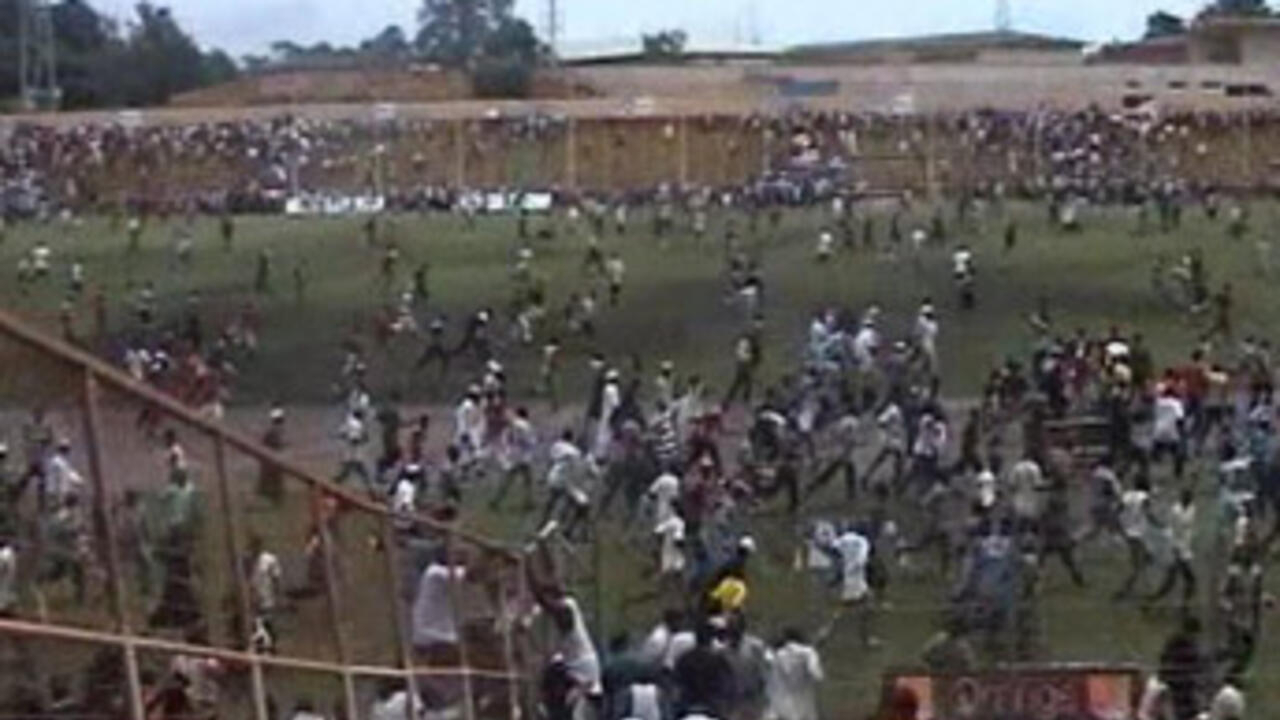
Lawyers for victims of a 2009 massacre in Guinea on Monday called for the charges in the landmark trial to be reclassified as crimes against humanity as closing arguments got underway.
Former dictator Moussa Dadis Camara and 10 other former military and government officials are accused of the killing of 156 people and the rape of at least 109 women by pro-junta forces at a political rally.
They face a string of charges including murder, assassination, rape, torture, intentional assault and battery, kidnapping, arson and looting.
“For us civil parties, these events, these horrendous, regrettable, condemnable and unacceptable crimes, are crimes against humanity,” said Hamidou Barry, one of the victims’ lawyers.
As the trial which opened in September 2022 entered its final stage on Monday, the court asked lawyers to ensure that defendants know their fate before the August recess.
The civil parties’ lawyers, who will speak on behalf of organisations representing hundreds of victims, are expected to present their arguments over several days.
On September 28, 2009, and in the days that followed, members of the presidential guard, soldiers, police and militiamen brutally cracked down on an opposition rally at a stadium in the suburbs of the capital Conakry.
At least 156 people were killed and hundreds injured, according to a UN-mandated commission of inquiry, in one of the darkest chapters in the West African nation’s history.
The commission said that the acts could constitute crimes against humanity.
“There is no other qualification: these are crimes against humanity,” said lawyer Barry.
He said the victims’ requests to have the charges reclassified had been rejected by investigating judges in 2017, the court of appeal in 2018 and by the court of cassation in 2019.
The lawyer also spoke of the military camps where some of those arrested had been taken.
In these camps, “it is not enough to kill, it is not enough to rape, it is not enough to wound, it is not enough to throw into the ocean, it is also not enough to tear the cheeks off the woman selling tomatoes or potato leaves,” he said.
Prosecutors in March sought crimes against humanity charge, with the court deciding it would rule on the reclassification when it made its final judgement.
